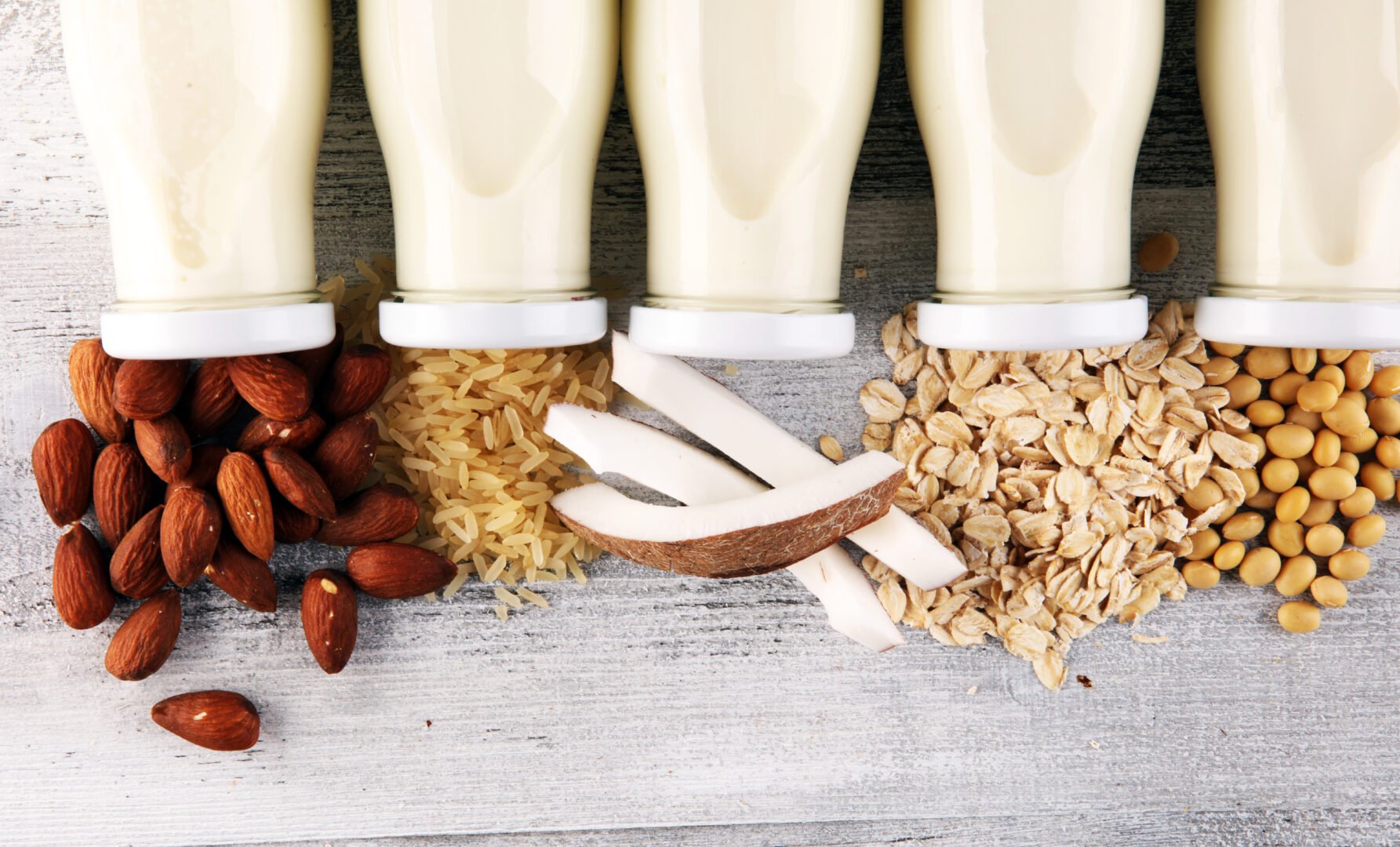Are plant-based milks “imitations”? No whey!

Plant-based dairy products—and especially plant-based milks—have gained wide popularity with consumers in recent years. As of 2019, plant-based milks accounted for 14 percent of U.S. retail milk sales, and other segments of the plant-based dairy market (such as yogurts and cheeses) are growing more rapidly still.
The National Milk Producers Federation (or “NMPF”) has viewed plant-based dairy as a threat to their cow-based market share for decades. They have stepped up their lobbying in recent years, pleading for the government to step in and obstruct plant-based dairy producers through onerous regulation. For years they have argued for label censorship—a ridiculous argument that products like “soy milk” and “almond milk” should not be called by their common names, because they do not contain milk from cows. The FDA and the courts have not taken these arguments seriously.
In a 2019 citizen petition to the FDA, NMPF proposed a new approach: a complicated amendment of the FDA’s regulation for “imitation” foods, to force plant-based dairy products to be labeled as “imitations” of cow’s milk. Under this regulation, instead of “soy milk” and “almond milk,” consumers would see products rebranded with the purposefully obscure and inaccurate term “imitation milk.”
This week, GFI submitted a comment to the FDA pushing back on NMPF’s proposal. We were pleased to be joined by the Plant Based Foods Association and seven plant-based dairy producers. NMPF’s proposal is wrong on the law and the facts: Plant-based dairy is not an “imitation” of cow-based dairy. Plant-based dairy products are entirely distinct in their own right, and have been around for centuries all around the world.
What are “imitation” foods?
The 1938 Federal Food, Drug, and Cosmetic Act (or FD&C Act) contains a provision that requires all foods that are “imitations” of other foods to be labeled “imitation ____” (fill in the blank with the food being imitated). As the FDA explained in 1973, this provision is intended to protect consumers from “uninformed” purchases of “inferior substitute product[s] which could be mistaken” for other products. For example, in a 1951 case, the Supreme Court considered a watered-down strawberry jam, in which strawberries were replaced with cheap filler ingredients, pectin and sugar.
Plant-based milks, obviously, are not watered-down cow’s milk masquerading as pure cow’s milk. They are clearly labeled as standalone products that consumers choose on their own merits as an alternative to cow’s milk. And as modern food production has made our food system more diverse, courts have further narrowed the scope of “imitation,” finding (for example) that non-dairy creamers are not “imitation cream” but separate and distinct products.
NMPF’s petition ignores this history, with nonsensical results
As GFI’s comment points out, the history and purpose of the “imitation foods” provision is based on the cheapening and counterfeiting of products, not on giving consumers new products that they value. And this history permeates every aspect of the FDA’s imitation regulation.
For example, for one food to be considered an “imitation” of another, the FDA requires that the food have a “reduction” in essential nutrients compared to the other food—what the regulation calls “nutritional inferiority.” The word “reduction” itself implies a modification of the food in some way, reflecting the history of imitation foods as cheap modifications or dilutions. By contrast, two completely distinct foods (like peanut butter and almond butter, canola oil and soybean oil, or cow’s milk and soy milk) are not modifications of each other. They have different levels of nutrition (for example, soy milk has more iron, while cow’s milk has more potassium). By NMPF’s logic, each food has a “reduction” of nutrients compared to the other, and each food is “nutritionally inferior” to the other. This makes no sense—because comparing two distinct foods was never the goal of the “imitation” provision.
NMPF’s proposal infringes free speech
This proposal picks winners and losers in the marketplace and declares animal-based dairy to be the winner, exempting animal-based products like goat’s and sheep’s milk from imitation labeling altogether. It is a transparent attempt to target plant-based dairy producers for daring to compete with animal-based dairy for market share.
And the proposed requirements for plant-based dairy—either label the product “imitation,” or declare its “inferiority” to animal-based dairy on the label—is an unconstitutional infringement of producers’ First Amendment free speech rights. For one thing, it is factually wrong: Plant-based dairy is neither “imitating” nor inferior. Plant-based dairy products have nutritional benefits, including lower calories, saturated fat, and sugar (lactose), and many of these products are fortified and considered equivalent or better than cow-based dairy. And under the First Amendment, a producer can’t be forced to carry its competitor’s message disparaging the producer’s own product—which is exactly what NMPF’s “imitation” proposal would require.
We’re continuing our fight for fair label regulation
To ensure fair competition and maximize consumer choice, the words we use matter. With this comment to the FDA, GFI is continuing our fight to build a fair regulatory framework for plant-based foods, and alternative proteins as a whole.

